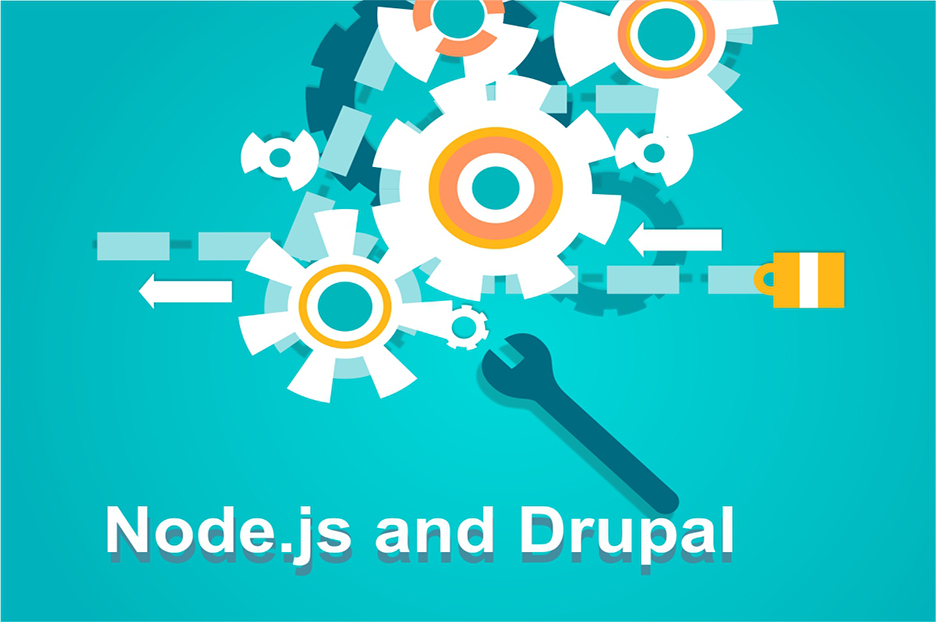There is a real “elixir of vivacity” that can help your Drupal website or app come alive in a way it never has. Sound lucrative? You’ll discover the rest from today’s story. After a glimpse at combining Drupal with AngularJS, we are now moving on to another member of the JavaScript family that is rapidly gaining popularity — Node.js. Let’s discover the reasons for its recognition, the benefits of using Node.js with Drupal, and the tool that helps you bring them together.
Node.js: what’s the secret?
Node.js, the famous cross-platform JavaScript runtime, is the dream (and the reality) of more and more web developers, especially when it comes to building real-time and multi-user functionality, as well as web servers. They choose Node.js due to a number of reasons, some of which are as follows.
-
JavaScript everywhere.
With Node.js, you can use JavaScript not just for client-side scripting, but also for server-side scripting. This bridges the gap between the front-end and back-end, synchronizes the data, and enhances the productivity.
-
V8 engine.
Node.js uses Google’s V8 JavaScript engine, which lets it gather amazing speed.
-
Event-driven, non-blocking I/O model.
The code execution is not blocked until another process is completed, which significantly improves performance. The event loop detects new events to promptly trigger the callback function.
-
Open-source.
Node.js has a handy Node Package Manager (NPM) with the repository full of modules and ready solutions created by the big developers’ community.
The tandem of Node.js and Drupal
Node.js can share with Drupal some of its real-time functionality magic, as well as awesome speed. This can be added to a solid foundation of a powerful, modern and advanced website or app that Drupal, as a content management platform, can provide. Together, these two can rock more than ever!
Real-time features
With Node.js, your Drupal pages can become especially dynamic, rich and interactive. The information is updated promptly and in real time, without reloading the page. Many users can be involved in shared processes.
However, it’s much more than user entertainment, engagement and convenience — it’s also essential for monitoring various serious processes, responding to customers’ requests, and so on.
Just a couple of examples:
- Dashboards
- Games
- Chats
- Polls
- Warning systems
- Auction bidding
- Push notifications
Third-party APIs working faster
Here is another benefit of using Node.js with Drupal. Third-party API integration is very common with Drupal, but Node.js can make it work much faster. Due to its event-driven, non-blocking nature, there is no need to wait for the API’s response.
Integrating Drupal and Node.js via the special module
It shouldn’t come as a surprise that Drupal has a module for Node.js integration. It’s called the Node.js module and is ready for both Drupal 7 and Drupal 8.
To make the integration, you should install Node.js and the dependencies, make settings in the nodejs.config.js file (for which the module provides a sample), start your server, and test the result.
For every idea, there is a tool or a combination of tools that can give additional capacities. Tell our Drupal developers about your idea, and they’ll combine Drupal with Node.js or other tools in the way that works best for you.

